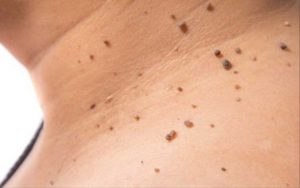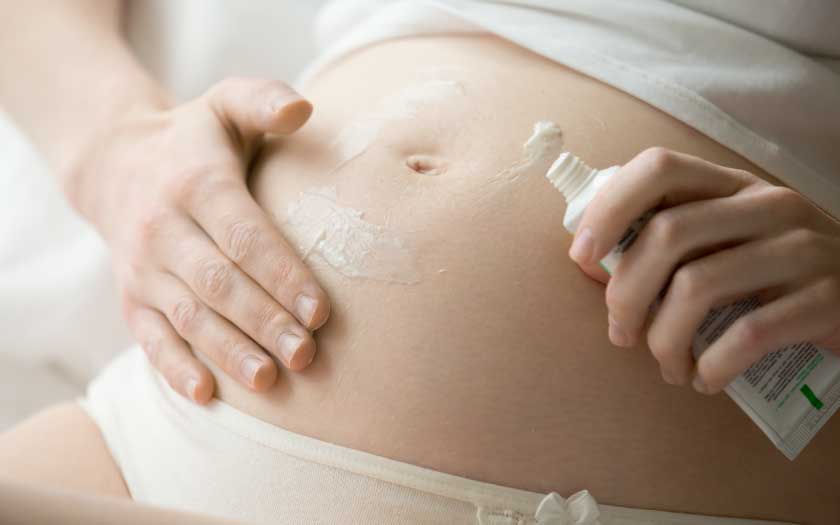What’s not to love about pregnancy? It’s a truly joyful experience, and some women feel the most beautiful during this period in their life. As with any other bodily changes, however, issues may pop up. The most common ones during pregnancy are skin issues.
While most people link pregnancy to the famous ‘pregnancy glow’, there are other skin changes that women generally loathe, and they happen quite promptly during pregnancy for a good many women. These dermal issues are caused by fluctuating hormones and they are only temporary. So, if you happen to notice your skin acting up during pregnancy, there is no need to stress out.
Here are some of the skin changes you may experience, and some useful tips on addressing them.
Pimples and/or acne
Remember that long bout of oily skin, plus those annoying acne and pimples during your teenage years which were caused by raging hormones? Well for some pregnancies, it might make its rounds again, just when you thought they’re long gone and forgotten. Hormonal fluctuations are still the culprit if you find your face breaking out in pimples and acne, but do resist applying over-the-counter pimple medication for now, for your skin may also be way too sensitive for the active ingredients in these medications.
Your doctor may be able to prescribe a safe and effective remedy or refer you to a dermatologist for treatment if the condition is really bad.
In the meantime, here are some useful pointers that may help:
- Don’t pop or scratch your pimples, for this can increase irritation and cause scarring.
- Drink lots of water for optimum hydration.
- Avoid carbonated beverages and too much caffeine.
- Eat a nutritious diet with fresh fruits and vegetables, lean sources of protein, and healthy fats like avocado and nuts. Avoid refined sugars and processed foods.
- Rest as much as possible. Stress and fatigue can trigger acne outbreaks.
- Change your pillowcases and towels often.
- Avoid touching your face, which can introduce bacteria.
Dry, itchy skin
While some pregnant women will have to deal with oily, pimpled skin, others may find their complexion turning exceptionally dry and itchy. Re-evaluate your skincare regime and switch to gentler products, or, if you can afford it, go for organic brands. They may cost more than conventional skincare, but they’re generally the safest products to use. Limit your time out in the sun as much as possible and always keep your face and body moisturized with a good, oil-based moisturizer. Drinking lots of water helps too as will running a humidifier in your bedroom at night to keep the air moist while you sleep.

Milk and honey dry skin mask
When combined as a facial mask, milk and honey can reap amazing results for the skin. Both ingredients have highly moisturizing properties that will help beat dry, itchy skin. To prepare the mask, mix one teaspoon of honey with one teaspoon of milk and massage it on your face. Let it stay on your face for about 30 minutes before washing off with tepid water.
Pruritic urticarial papules and plaques of pregnancy (PUPPP)
PUPPP appears as an outbreak of pale red bumps and even lesions on the skin, and they can be alarming if you do not realize what it is. What’s worse, these skin lesions may itch, burn, or sting. They can dramatically differ in sizes and may appear on the abdomen, arms, legs, and buttocks. When they form together in a large area, they are called plaques.
Treatments may vary from antihistamine to relieve symptoms, or topical corticosteroids, prescribed by your doctor. Do not use soap on involved skin, since it will cause more dryness and itching. Instead, try an organic body wash and use it while having a quick, warm shower. You can also try cool compresses on the affected areas for immediate relief from itching and burning. Tip: Wear cool, lightweight cotton clothing for added comfort.

Skin tags
Of all the many weird things that happen to a pregnant woman’s skin, the skin tag must be one of the most mysterious. A skin tag is a small flap of tissue that hangs off the skin by a connecting stalk. They are usually found on the neck, chest, back, under the breasts, and in some cases, on the groin.
Unless something rubs hard against them, skin tags are usually painless and most are only really noticeable by the one who has it.
Some skin tags may fall off on their own while some may not. Unless the tags do bother you, talk to your doctor about safe methods to have them removed.
Pregnancy Cholestasis
If your hands and feet feel extremely itchy, be sure to see your doctor, for it could be a condition called pregnancy cholestasis, a liver disorder that most often occurs late in pregnancy, typically during the third trimester. Pregnancy cholestasis occurs in just one to two pregnancies in 1,000, and while it may not endanger the mother, it can cause complications in a newborn — which is why it’s important to recognize the symptoms and talk to your doctor. Early diagnosis and active management by your doctor can help bring this condition under control.
Melasma — The Mask Of Pregnancy
Melasma, a form of hyperpigmentation, is characterized by dark patches on the skin and it usually occurs on the face of pregnant women, gaining its infamous name, The Mask of Pregnancy. Be sure to consult a dermatologist for a proper diagnosis and advice on possible treatments. In the meantime, if you have melasma, limit your exposure to direct sunlight, especially between late mornings and early evenings, and be diligent with sun-protection if you have to be outside during those times.

Try this Papaya & Yogurt DIY Facial Mask which you can whip up anytime at home:
Use ½ cup of mashed ripe papaya pulp, 1 tsp of lemon juice, 1 tsp of honey, and ¼th cup of yogurt. Mix all ingredients and apply a thick layer over the skin. Wash it off after 30 minutes with warm water and pat dry.


